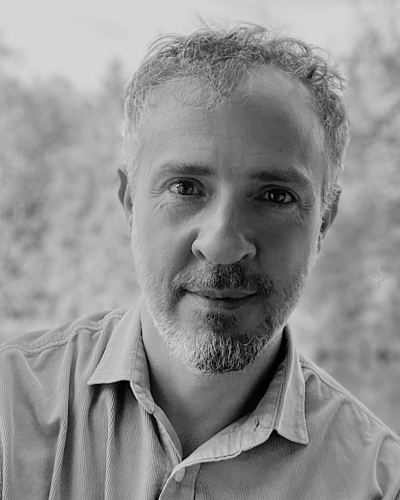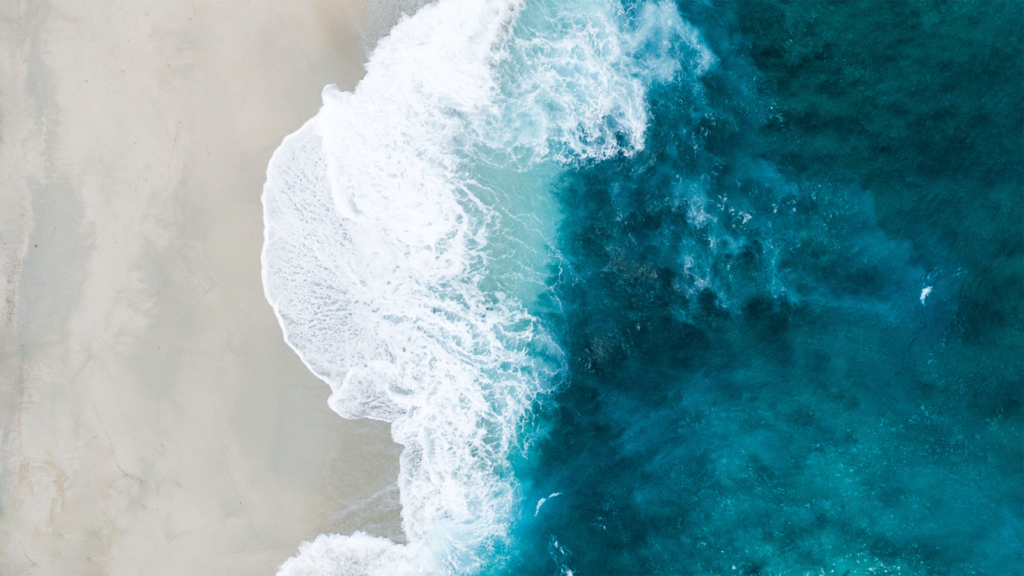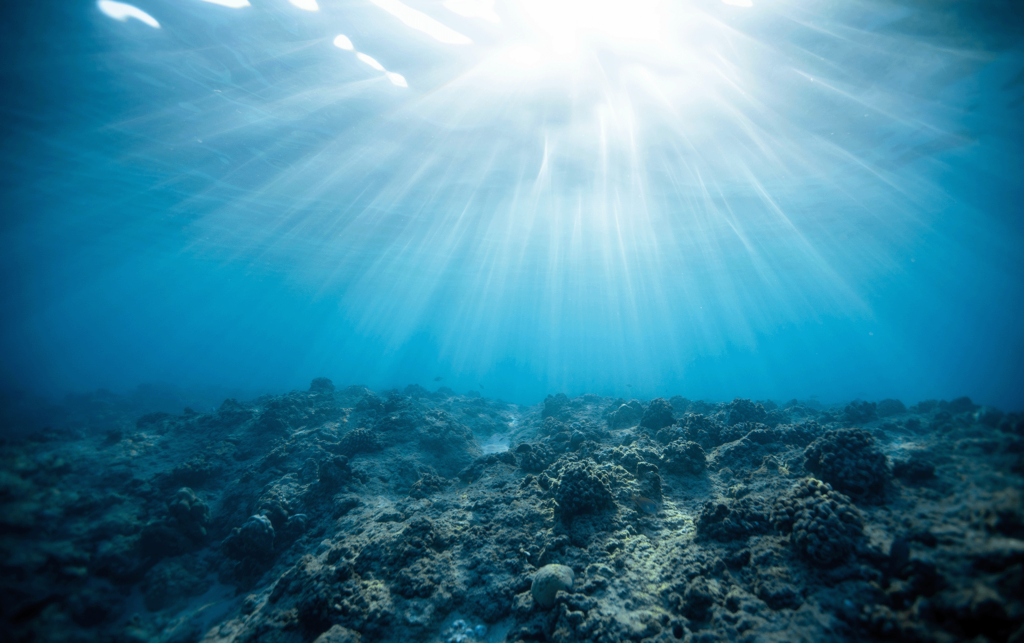[00:00:00] James Lawler: Welcome to Climate Now, a podcast that delves into the scientific ideas, technologies, and policies that will help us address the global climate crisis and reach a net-zero future. I’m your host, James Lawler. You are joining us today for the second part of our series on ocean based carbon dioxide removal, also known as ocean CDR.
[00:00:26] James Lawler: I’m joined today again by Will Burns, visiting professor of Environmental Policy and Culture at Northwestern University, who has spent more than 25 years studying the social political and legal issues at play when developing climate mitigation technologies, including ocean CDR.
[00:00:42] James Lawler: If you find today’s episode interesting, subscribe to our newsletter at climatenow.com. There, you’ll also find dozens of conversations with experts and videos explaining key ideas related to the energy transition and climate science.
[00:00:57] James Lawler: In our last episode, we looked at why there’s this recent wave of scientists and entrepreneurs looking to the oceans to capture and store CO2, and what types of projects they’re developing to do that.
[00:01:09] Wil Burns: For this episode, we’ll apply a little healthy scrutiny to these entrepreneurial plans and examine some of the biggest challenges facing ocean CDR projects, as well as their potential solutions.
[00:01:21] Wil Burns: Does ocean CDR really consume as much CO2 as we think? How can we know? What else might it be doing to the oceans, and how can we regulate this growing industry?
[00:01:33] James Lawler: One of our guests in part one of this series was Greg Rau, a biochemist and co-founder of Planetary Technologies. Greg’s company aims to use waste dust and rock from mining operations that, through a series of electrochemical reactions, will make seawater more alkaline. Because CO2 forms an acid when it is absorbed into sea water, carbonic acid, increasing the pH of seawater through alkaline enhancement will actually drive more CO2 absorption, forming more acid, which will rebalance the ocean pH.
[00:02:05] Wil Burns: But there’s one drawback. While this technique works on the lab bench, it has not yet been tested in the ocean, and that’s because of an international treaty known as the London Convention, which states that no one is allowed to go and dump waste into the ocean.
[00:02:20] Wil Burns: Now, while that treaty was originally intended to prevent people from offloading toxic trash into the ocean, like nuclear fuel, for example, it also applies to dumping anything for the purposes of CO2 sequestration. This is because, like dumping waste, techniques that put additives into the ocean, like the derivatives of processed mind tailings, could have unforeseen negative impacts on ocean ecosystems. That makes it rightfully really hard to test the real world efficacy and safety of a technique like ocean alkalinity enhancement.
[00:02:57] Wil Burns: Here is Greg Rau, explaining how Planetary Technologies is approaching that challenge.
[00:03:04] Greg Rau: We realize that it’s important that we stay within legal permitted limits in terms of adding materials to the ocean, as well as operating in a mine tailing setting as well. So, we are aware that we have. Be respectful of rules, existing rules and regulations, and we are very much engaged in that side of it.
[00:03:25] Greg Rau: Our initial plan in terms of releasing our alkalinity into the ocean is to take advantage of existing outfalls rather than us building our own outfall or going out in a ship and dumping it. Our plan right now is to simply piggyback on existing outfalls that are permitted within certain ranges, chemistry ranges, et cetera, and to add our hydroxide in a way that doesn’t violate any of those permitted discharges.
[00:03:54] Greg Rau: In some cases, it is actually quite beneficial because a lot of these discharges are slightly acidic, or have a pH below that of a seawater, so by adding alkalinity, you’re actually making it more compatible with seawater. So, there are a number of situations where we’re actually benefiting these discharges by adding alkalinity, but there’s a number of things that need to be looked at and worked out.
[00:04:17] Greg Rau: No one has done this as far as we know, and we really have taken a hard look at the downstream chemical and biological effects. We are planning to do that with our partners at Dalhousie University and others. We are aware that this is something new that hasn’t been done before, and we need to prove the safety and effectiveness of this, and that’s certainly a big part of our research effort.
[00:04:41] James Lawler: Greg’s point goes for all ocean CDR methods. There is a lot we don’t yet know, not only about the unintended impacts of these projects, but also how effective they actually are in practice. Kelp farms, for example, are increasingly popular in the carbon offset industry, and on paper, it seems like a great business model. Kelp consumes carbon from seawater, and then seawater can absorb more carbon from the air to restore the balance, which a company then can claim as a carbon offset, but marine biologist Mowgli Holmes explains to us how even this seemingly straightforward process is actually more complicated than people realize.
[00:05:22] James Lawler: Mowgli is the founder of Submarine, a company that develops models for large scale carbon drawdown. He spoke with us in part one of the series and here’s more from our conversation.
[00:05:33] Mowgli Holmes: So, let’s look at a kelp project, right? So, someone wants to grow a huge amount of kelp, let’s say, in the open ocean where we don’t have to think about the complications of shorelines.
[00:05:43] Mowgli Holmes: And, let’s say they build some kind of platform or there’s ropes or some physical support, and they seed it with kelp, and the kelp grows, and it’s just, it’s fixing CO2. Then they harvest it and they sell it and they make stuff out of it, and all the carbon dioxide, it gets really re-released, and so it hasn’t really accomplished anything.
[00:06:03] Wil Burns: It isn’t enough to just trap the carbon in the kelp you grow. It matters where that kelp ends up. Projects that sell the kelp they raise as food just means that carbon ends up on land and eventually back in the atmosphere, the only way that kelp projects will keep the carbon sequester from the atmosphere for hundreds or thousands of years is if we sink the kelp and its carbon down to the bottom of the sea.
[00:06:29] Wil Burns: But even that solution has caveats.
[00:06:31] Mowgli Holmes: I mean, you say, I sank a half a ton of carbon dioxide to the bottom of the ocean, so I should get half a carbon credit. The simple fact is that’s just not how the math works. So, kelp does not pull CO2 out of the air. It pulls it out of the water, and then you have water near the surface that has less CO2 than it did before.
[00:06:53] Mowgli Holmes: So, the air and the water equilibrium, and that water will start to absorb CO2 from the air. Gradually, that CO2 depleted water mass will start to float around, maybe over hundreds of thousands of miles, gradually, slowly pulling little bits of CO2 out of the air. If we did this on a massive scale, it would have a huge effect, but it’s hard to measure, and the ocean is in constant motion.
[00:07:16] Mowgli Holmes: And then in addition to that, the kelp that you sink to the sea floor will degrade over time. It will remineralize and the CO2 will be released. And that’s okay if you’re in a deep part of the ocean where that bottom water, which is moving slowly along the ocean floor, isn’t going to come back up again for a thousand years. But lots of parts of the ocean floor have water that’s going to come up in 50 years, and that ventilation time scale is going to determine how permanent it is.
[00:07:45] Mowgli Holmes: It’s been very easy for people to think, well, okay, I’m going grow this much, and I’m gonna sink it to the ocean, and I read somewhere that if you sink it below a thousand meters, then it’s good for 700 years. That’s true in a spot or two, but it’s not true everywhere.
[00:07:59] Mowgli Holmes: That’s only the beginning. There are more. The issues go on and on. It’s not that we can’t measure it, we can pull in lots of data. We can run very, very high resolution regional models that are nested inside of full earth system models to look at feedbacks with broader regions, and we can get pretty good estimates of how much carbon an individual project will draw down.
[00:08:19] Mowgli Holmes: But it’s not straightforward, and it will take huge amounts of data input from each project site. And it will take high resolution, regional modeling that you can only do on a supercomputer.
[00:08:29] James Lawler: The problem isn’t only that tracking what you expect to happen in the ocean is complicated.
[00:08:34] James Lawler: The science itself is still so new that scientists are trying to understand some of the most fundamental aspects about how carbon uptake in the ocean system works. A key example is the work by marine scientist, John Barry Gallagher, who has spent years studying how the ocean floor consumes carbon. He recently discovered new variables that reduce the amount of carbon that seaweed farms were thought to consume.
[00:09:00] James Lawler: Because his research contradicts other studies that have been the basis of real world ocean CDR projects, these results have been somewhat controversial. Will and I sat down with Barry to discuss his findings.
[00:09:12] James Lawler: At the start of our conversation, he described the appeal of seaweed farms as a carbon drawdown technique because of how much carbon these plants can draw down relative to their size and aerial coverage in the ocean, but he soon became a bit skeptical of what was being promised.
[00:09:30] John Barry Gallagher: They haven’t for the seaweed system considered the input of material outside the canopy, which has already been fixed by photosynthesis, would be plankton, algae, also coming into the canopy, being eaten by the local animals there, and extra CO2 is produced.
[00:09:46] Wil Burns: Until John had published his studies, scientists had looked into the CO2 capture potential of just the seaweed itself. But what John found was that when you cultivate giant fields of seaweed or kelp, those fields attract lots of other things. Algae, plankton, fish, oysters—whole new underwater ecosystems. And these ecosystems produce a lot of carbon, maybe even more carbon than the seaweed consumes.
[00:10:16] John Barry Gallagher: They’d only considered the production of the plant itself and what’s been eaten of that plant, and not the extra input. Oysters, which can filter something like 300 liters a day, one oyster, through its gills.
[00:10:32] John Barry Gallagher: So, you know, they really hoover up the stuff. If there were no extra carbon coming in for the animals to eat, will always be a net positive. Right. You can’t get a net negative, you can’t produce more CO2 than you take up, right? What was actually happening is that either it was reduced to what it should be, or in many cases, unequivocal, that is, actually the net balance through the seasons was either completely balance, or in many cases, there was far more CO2 produced and taken up, which is theoretically impossible.
[00:11:05] Wil Burns: Folks that are looking to sell carbon credits via seaweed have been apoplectic, quite frankly, about this paper. So, what arguments are they making and why do you not find them convincing?
[00:11:18] John Barry Gallagher: Okay. The arguments, first are just basically strange and wrong. That’s all I could say.
[00:11:24] John Barry Gallagher: For example, arguments may be… You are talking about a balance, an annual balance of stuff coming in and be eaten, and extra CO2 being produced from the outside. It’s not a long term storage thing.
[00:11:35] John Barry Gallagher: Well, no, it’s not. It’s just a carbon balance, which, if the seaweed’s there every year, the balance is such that you’re going to produce more CO2 than you actually sequester. I don’t understand the logic behind that. All we’ve done is put an extra amount of CO2 produced coming in from subsidies. People think it’s a separate model, but it’s not. It’s just an additional input to the old model.
[00:11:58] James Lawler: John’s inputs to his model are an estimate of all the carbon each organism in an ecosystem releases or consumes, and how much of each organism you might find in a given ecosystem. While John discovered that his more holistic view decreased how much CO2 a kelp or seaweed farm could absorb from the atmosphere, on average, there were certain places and conditions in which it could work.
[00:12:21] James Lawler: John recently reviewed an upcoming paper in which researchers found that seaweed farms in Japan were indeed consuming more CO2 than they were producing, probably because the seaweed was being harvested before much of an ecosystem could grow up around it.
[00:12:36] James Lawler: Even if, say, a kelp farm releases more CO2 than it absorbs, it still might be a net loss of carbon from the atmosphere, depending on what sort of ecosystem was there before the kelp.
[00:12:47] John Barry Gallagher: It is relative what ecosystem you’re putting on top. So, you can imagine that even if you have, say, a seaweed ecosystem, but it takes up a little bit of a carbon, not much, or it’s carbon neutral, and you think, ah, nevermind, it doesn’t look like much. But, if the global carbon balance or the carbon balance of that replacement system, like a urchin barren or something which has replaced it, is actually a greater carbon source than the carbon neutral seaweed one, by keeping the seaweed, even though it’s carbon neutral, you’re stopping that system producing a lot more CO2.
[00:13:27] John Barry Gallagher: So, mitigation is relative to what you replace.
[00:13:31] James Lawler: John Barry Gallagher’s research is just one example of how even the most seemingly straightforward ocean CDR project, like planting an underwater forest to store carbon, can be rife with unexpected variables and unintended consequences. To me, it seemed like an insurmountable challenge. During my conversation with Mowgli, I told him as much.
[00:13:53] James Lawler: I mean, you’re painting a picture of what sounds like pretty much an impossible task in terms of understanding, at least in the case of kelp.
[00:14:01] Mowgli Holmes: Let me just speak to that reaction you had, there, that it sounds like an impossible task.
[00:14:06] Mowgli Holmes: Unfortunately, it sounds like that to a lot of people, and it’s important to emphasize to anyone who thinks it’s simple, that it’s complicated. We need people to grapple with the full complexity of it. It is not impossible at all. So, the technologies that we’re leaning on are the last, you know, 60 years of climate modeling.
[00:14:25] Mowgli Holmes: Climate modeling is an extraordinary international endeavor that is the root of everything we know about climate change, really. The models that we have are incredibly powerful. I mean, they’re not crystal balls, but full earth system models simulate the entire planet at a level of resolution that is surprising and can tell us an incredible amount about what’s gonna happen.
[00:14:49] Mowgli Holmes: So, the technology exists to essentially do all of this math and get real numbers about what’s happening. It is complicated, but it’s absolutely possible.
[00:14:58] Wil Burns: But let me ask you this: you’re talking about pretty detailed modeling in a cooperation of super computers,and so forth. Would this approach then prove cost preclusive, even if it is potentially technologically viable, especially where we have a lot of the companies that are engaged in ocean CDR being very small, right? Unlike direct air capture, where you have people like Occidental involved now, and others of that nature. Most of these companies are running on a budget of $5 million or less, even the companies we’re touting as ‘big companies,’ right?
[00:15:35] Wil Burns: Would they be able to afford this kind of modeling, and would the price of carbon credits then have to be so high for them to be able to afford it, that it would essentially chase them out of the marketplace?
[00:15:49] Mowgli Holmes: That’s a huge and foundational issue, and we already see that happening in the carbon market, right? So, on one hand, people need to accept that quantifying carbon projects is gonna be more expensive than they thought, and it will add to the price.
[00:16:05] Mowgli Holmes: On the other hand, we’re in the same spot as all these nascent technologies are, which is that it’s going to be expensivethe first couple times we do it, and that price will come down rapidly.
[00:16:13] Mowgli Holmes: Super computing is gonna migrate to the cloud, and gradually costs will come down and we’ll get better and better at doing what we’re doing.
[00:16:19] James Lawler: Mowgli’s forecast that big data and cutting edge technology will help make these vastly complicated ocean CDR approaches more effective, less expensive, and just plain feasible is heartening. But in his argument, he is highlighting one of the key challenges of ocean CDR, as well as land based carbon capture projects: verification.
[00:16:38] James Lawler: It is essential that third party regulatory bodies exist to ensure that ocean based carbon capture projects are doing what they say they’re doing, but it is also both tricky and expensive to do so.
[00:16:52] Mowgli Holmes: CDR projects are expensive already. It’s already a problem that the best ways of doing it can cost the most.
[00:16:59] Mowgli Holmes: We see with soil and, and carbon and forest carbon, that verification already can be five to maybe sometimes 20 percent of the total cost. The truth is it is a nightmare quantifying soil carbon, too.
[00:17:12] Mowgli Holmes: It raises all the same issues. There are also conflict of interest problems. Carbon markets are built around this idea that we can have a private sector, a supply chain, that solves this important public goods problem, and they’re generally unregulated, and everybody in the supply chain from the project developer to the certifiers to the marketplace entities is motivated to have a lot of tons flow through.
[00:17:34] Mowgli Holmes: There has to be an independent body that comes in and provides ground truth without any motivation to exaggerate it.
[00:17:34] Wil Burns:Does that argue maybe in favor, ultimately, of government regulation? Because I agree with you, even when we look at the certification agencies that are out there, such as Verra or Gold Standard.
[00:17:53] James Lawler: For our listeners, Verra and Gold Standard are independent carbon reduction certification agencies.
[00:17:59] Wil Burns: They still have the motivation to maximize project flow, right? Is this independent verifier necessarily going to have to be government at some point?
[00:18:09] Mowgli Holmes: Well, the verifier doesn’t have to be the government, but the regulatory framework… I don’t see an example of private sector self-regulation working adequately.
[00:18:21] Mowgli Holmes: It’s not likely to happen voluntarily, right? And that’s why I asked about the government role. Is this ultimately going to have to be compelled if we’re going to have any semblance of confidence in the integrity of this system?
[00:18:33] James Lawler: I wonder, just to throw this out there, carbon sequestration and crediting for carbon capture and sequestration, it strikes me as being fairly unique.
[00:18:42] James Lawler: It’d be one thing if you could see the carbon, if you were producing something that you could hold, it’s either produced or it’s not, and it would be fairly easy for a whistleblower internally to say, hey, you’re taking money for this thing that you’re not doing.
[00:18:56] James Lawler: As long as it’s in the public’s interest to avoid a climate crisis, there would be watchdog voices that would not tolerate that. The situation we’re in, though, is that you can’t see it.
[00:19:09] Mowgli Holmes: So there has to be, in addition to regulation, there has to be sort of a public spotlight. I think what you’re describing is what we need and it will happen as more people start to become aware of this stuff. It has to be, you know, a big public issue, but at the moment,people are not sitting on street corners talking about the validity of carbon credits.
[00:19:29] Mowgli Holmes: It has to become a bigger deal, and it has to be transparent. One thing that’s sad is that I don’t question that Will is correct. That it would require governmental oversight, but I actually don’t even think that’s enough. I think it also has to have this sort of public oversight that you’re talking about.
[00:19:43] Mowgli Holmes: If you look for examples of private sector regulation or stuff like this, you can’t really find them. If you look for examples of really good governmental regulation of stuff, it’s not pretty and it’s not transparent, and you can get rubber stamped by state governments to do stuff that would not hold up to public scrutiny.
[00:20:00] Mowgli Holmes: So, I think in the U.S., just saying, we need governmental regulation is itself not enough.
[00:20:06] James Lawler: Greg Rau also recognizes the need for regulation and monitoring. He said that Planetary Technologies will take initiative and be open and transparent about the ocean alkalinity enhancement projects, but he said education and public engagement will be crucial for the entire industry moving forward.
[00:20:22] Greg Rau: Clearly public engagement is going to be very important here. We need to inform people what we’re doing, we’re going to need to ask for their input, what their concerns are, and certainly work around that. We really need their permission to do this. It’s not something that we’re going to do on our own.
[00:20:42] Greg Rau: So yes, there is a lot of education and outreach that needs to happen. We recognize that, and in our case, it’s not just the land side, which is the mining side of this, but it’s also the ocean side as well. We recognize that we need to make it as transparent as we can, what we’re doing, why we’re doing it, what the risks are, what the benefits are, and ultimately get their approval, society’s approval to do this at whatever scale we can.
[00:21:13] Wil Burns: Greg, as usual. I really appreciate the fact that you didn’t bullshit. I mean, one of the things I’m frustrated with sometimes is I hear people in this field that won’t acknowledge that there’s risks that need to be assessed, that there’s lots of uncertainty still in issues such as measurement.
[00:21:29] Will Burns: It’s going to take us a while to learn some of this stuff, right? It certainly doesn’t mean we shouldn’t be doing this research, but I think it fundamentally undercuts the integrity of a young industry to not be acknowledging those things.
[00:21:43] Greg Rau: Yeah. It’s important that we understand what we know and what we don’t know and, and proceed accordingly.
[00:21:50] James Lawler: Ultimately, how well any ocean CDR technology works will be irrelevant if we do not establish a framework by which all stakeholders can be confident that we can track and quantify both the positive and potentially harmful impacts of the process, and because we are talking the ocean, a globally interconnected body of water covering 70 percent of Earth’s surface, home to about 80% of the world’s animals, and under no single nation’s authority. Everyone is a stakeholder.
[00:22:19] James Lawler: How such a transparent, independent, and disinterested authority for ocean CDR regulation will be established is still pretty murky.
[00:22:27] James Lawler: In our next and final podcast episode of this series on ocean carbon dioxide removal, we’ll take a closer look at the role of government regulation.
[00:22:36] James Lawler: We’ll speak with a policy lawyer helping governments govern ocean CDR on a global scale. We’ll also speak with a consultant helping companies navigate the future of the blue economy. Stay tuned.
[00:22:53] James Lawler: That’s it for this episode of the podcast. If you’d like to get in touch, please email us at contact@climatenow.com, or tweet us @weareclimatenow.
[00:23:01] James Lawler: We hope you’ll join us for our next conversation!
[00:23:07] James Lawler: Climate Now is made possible in part by our science partners, like the Livermore Lab Foundation. The Livermore Lab Foundation supports climate research and carbon cleanup initiatives of the Lawrence Livermore National Lab, which is a Department of Energy Applied Science and Research facility.
[00:23:21] James Lawler: More information on the foundation’s climate work can be found at livermorelabfoundation.org.








